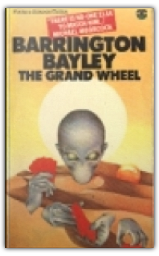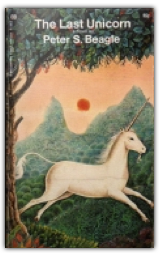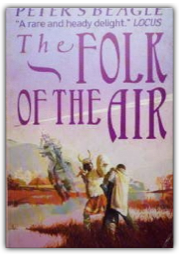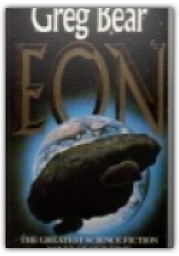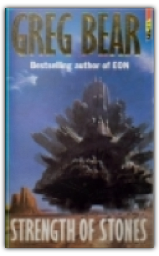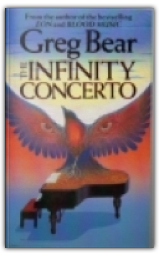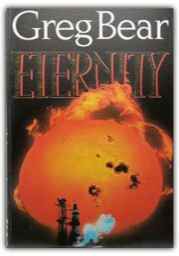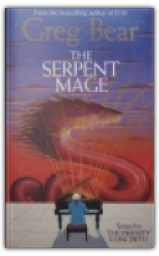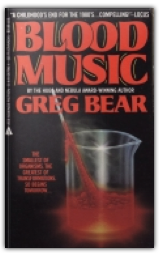 Blood Music
Greg Bear
Blood Music
Greg Bear
The Hugo and Nebula Award-winning author of Moving Mars presents the book that launched his career, featuring a scientist who conducts an experiment in cell restructuring that takes on a threatening life of its own. Reprint. AB. LJ. 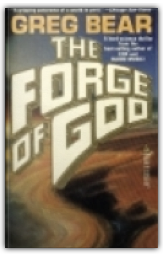 The Forge of God
Greg Bear
The Forge of God
Greg Bear
Europa, one of Jupiter's moons, disappears and a spaceship is found in California. Beside it is a dying alien which says clearly "I'm sorry, but there is bad news." Meanwhile, in Australia, another ship appears and Alan Gordon feels that something terrible is about to happen. 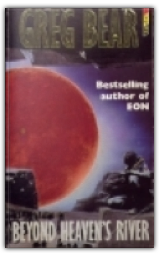 Beyond Heaven's River
Greg Bear
Beyond Heaven's River
Greg Bear
Bear works best on a large canvas, and the short story is not his ideal medium—he can carve monumental figures out of mountainsides but is less skilful whittling cherrystones. Nonetheless, there's much here that is interesting to the fan and non-fan alike. For example, this volume includes the original short story out of which Bear's classic, imaginative and deeply spooky novel Blood Music was developed; if the story isn't as powerful as the novel that's only what we'd expect. Certainly as a story it works well, and won both Hugo and Nebula awards. The title story of the collection is another double-winner, and is hauntingly suggestive: it combines a version of Alan Turing with a neat little story about extra-dimensional physics that works efficiently as a tutor in topographical mathematics. Other stories manage varying degrees of control; Sleepside Story, a kind of urban fairy tale, leaves the reader thinking that Bear is better suited to Hard SF after all. Similarly The Dead Run—which was turned into a Twilight Zone episode—is fair enough in a sub-Stephen King sort of way, with its premise of blacklisted truckers driving condemned souls down to Hell in their rigs (and its arresting first sentence: "There aren't many hitchhikers on the road to Hell"). But too few of the stories here trade in the grandeur and wonder of Bear's best, big-scale work. —Adam Roberts |
 Made with Delicious Library
Made with Delicious Library
London, State zipflap congrotus delicious library Scott, Mike
